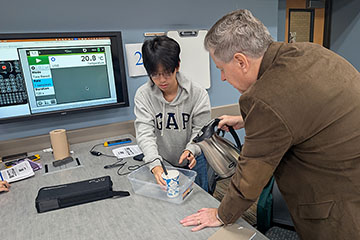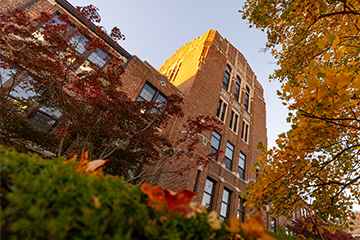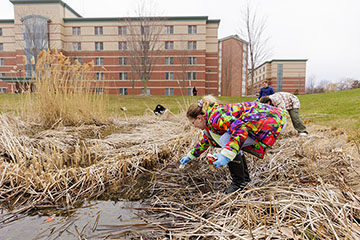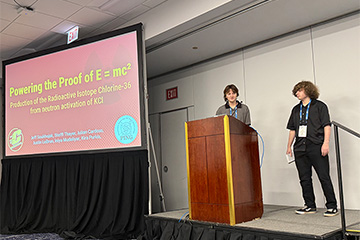Cultivating a growing partnership
CMU students team up with Saginaw Chippewa Tribal College to create ethnobotanical garden
Central Michigan University stands on the ancestral lands of the Anishinaabe people and is proud to be a partner of the Saginaw Chippewa Indian Tribe. For many years, the university and tribe have collaborated on programs, events and activities to showcase the rich history and culture of local Indigenous people.
That tradition continues with a new ethnobotanical garden on CMU's campus.
The effort was led by CMU juniors Teresa Homsi and Eric Urbaniak, who are sustainability coordinators for Central Sustainability; and a group of students and staff from the Saginaw Chippewa Tribal College: Jeannie Snyder, Elisa Grossman, Chyann Haas and Kathy Hart.
"Having this garden on campus is meant to serve as a form of recognition for the tribe, as well as build a cultural bridge between our two schools," Homsi said.
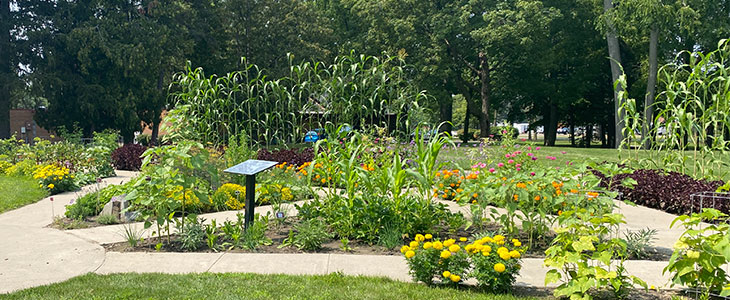
The legend of the Three Sisters
The garden, located on the south end of the Fabiano Botanical Garden near the pond, represents the legend of the Three Sisters.
The Three Sisters garden includes beans, corn and squash — three plants that work together and support one another. Sister Bean fixes nitrogen from the air, Sister Corn offers support for the bean's trailing vine, and Sister Squash provides ground cover that holds moisture and maintains a healthy soil environment while deterring animal invaders with its spiny stems.
"This is what our ancestors did, and I would like people to know that the Three Sisters are just one example of our ancestors' knowledge," said Hart, equity program coordinator for the Tribal College.
The garden also features sage and other plants significant to the Saginaw Chippewa Indian Tribe, Urbaniak said.
A sustainable relationship and environment
To bring the garden to campus, Homsi and Urbaniak worked with Karin Johnson, manager of the CMU Greenhouse and director of horticulture for Fabiano Botanical Garden; Matthew Liesch, chair of Geography and Environmental Studies; and Sally Kniffen, an environmental specialist from the tribe's planning department.
The garden is the second partnership project between Central Sustainability, which is a part of Diversity, Equity and Inclusion at CMU, and the Saginaw Chippewa Indian Tribe.
Cultural sustainability focuses on celebrating cultural beliefs and practices, respecting heritage conservation and honoring identities, Urbaniak said.
"It's important to bring cultural sustainability to our campus and recognize that we are not all a part of the same culture. We need to recognize and be respectful of our differences, and that's how we are going to build a community around us," he said.
Hart said connecting CMU students with Tribal College students is beneficial because they can learn from each other.
"If people are around people who help each other grow and thrive, they tend to grow and thrive also," Hart said.
This story was written by University Communications intern Caroline Kramer.
Acknowledging place, honoring a people
Central Michigan University honors and recognizes the Anishinaabe people, whose beautiful ancestral lands CMU stands upon today. We acknowledge and thank the members of the Saginaw Chippewa Indian Tribe, who have resided on this land for more than 200 years.
To recognize the land is an expression of gratitude and appreciation upon whose territory we reside, and a way of honoring the Indigenous people who have been living and working on the land from time immemorial. It is important to understand the long-standing history that has brought us to reside on the land, and to seek to understand our place within that history.

